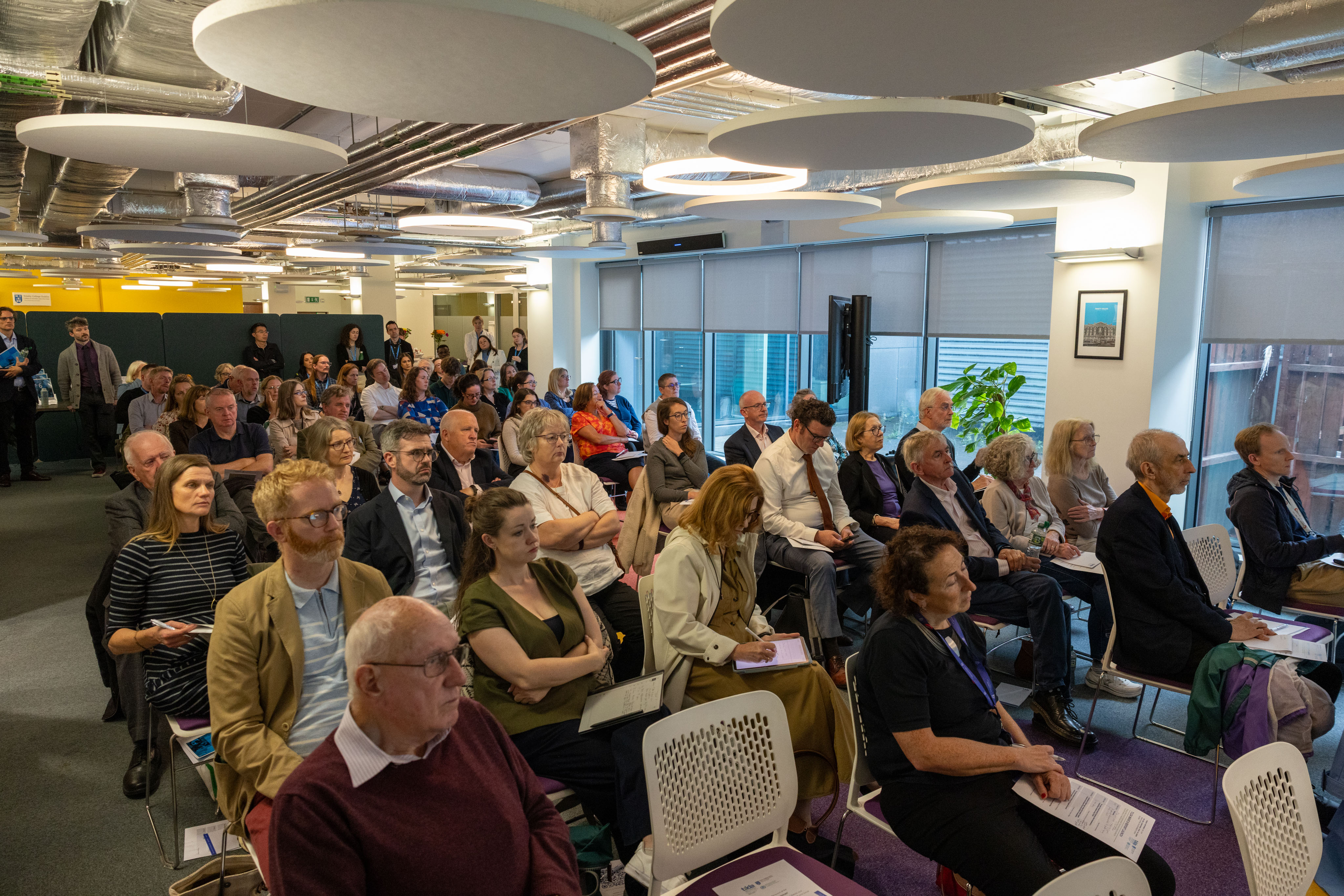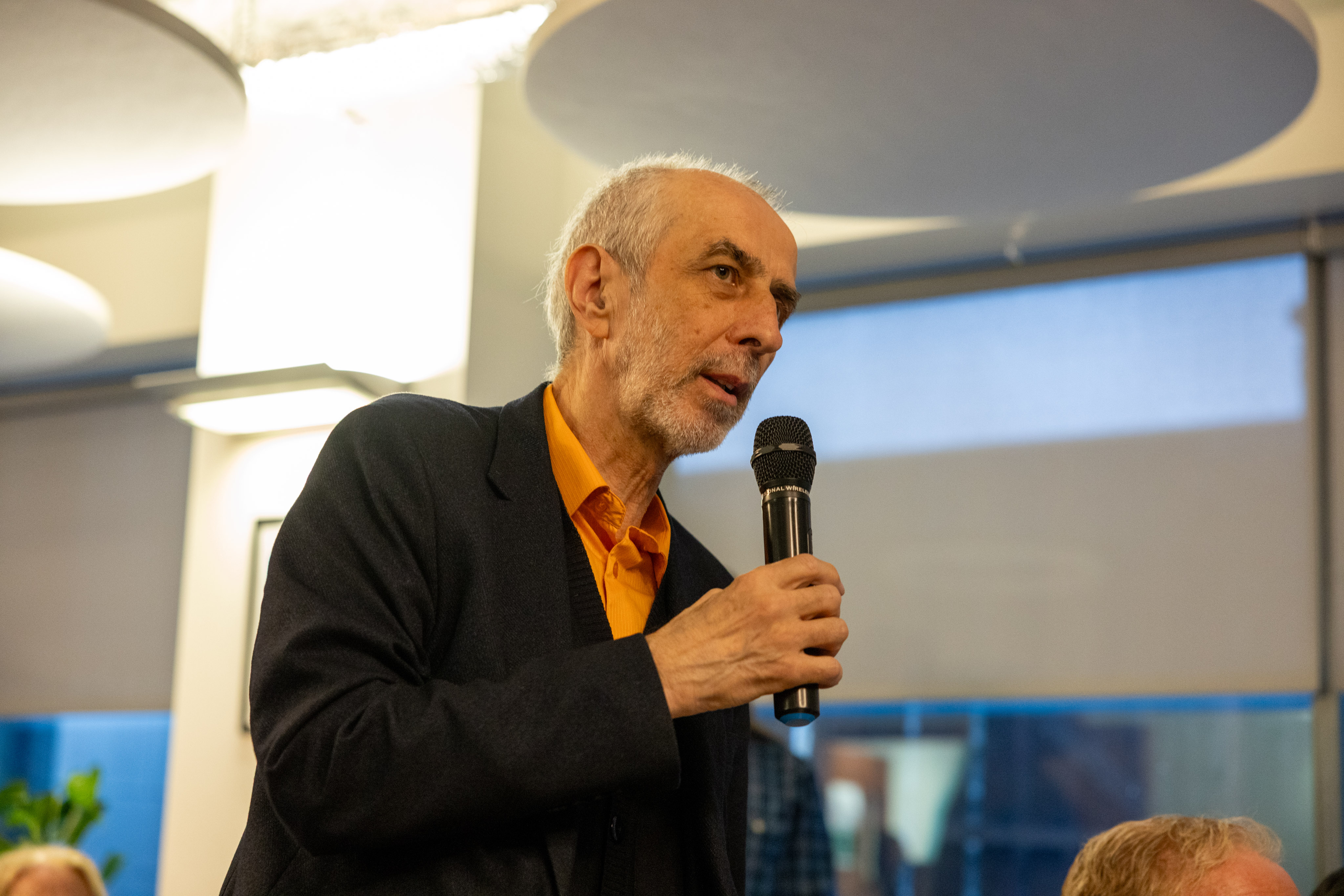Launch of the TILDA Wave 6 Report
Posted on 11 September 2025
TILDA has launched its most comprehensive report to date, TILDA Wave 6 Report: Shaping the Future – Longitudinal Trends and Opportunities for Transformation in Health and Social Care in Ireland.
Drawing on 14 years of data from over 8,000 participants, the report provides hundreds of insights into what it means to grow old in Ireland. With the population aged 65 and over set to double by 2051, the findings highlight urgent challenges and opportunities in how Ireland supports its ageing population.
Key Themes from Wave 6
The Wave 6 report tracks changes in health, wellbeing, and caregiving over time, identifying both progress and areas of unmet need:
- Loneliness: Loneliness levels more than doubled during the COVID-19 pandemic, before returning to pre-pandemic rates. However, a significant proportion of older adults continue to experience loneliness, which is strongly linked to poorer health outcomes.
- Unmet health needs: Many older adults remain undiagnosed or under-treated for conditions such as hypertension, high cholesterol, osteoporosis, depression, and chronic pain. At Wave 6, 36% had undiagnosed hypertension and 45% had undiagnosed high cholesterol.
- 4Ms Framework: Using the international framework of Mobility, Medications, Mentation, and What Matters, the findings show that ageing is multidimensional. Quality of Life can improve into the mid-60s before declining later, and while women live longer than men, they experience more years with health challenges.
- Caring: Older adults providing over 50 hours of care each week reported poorer mental health and wellbeing, with women particularly affected by depressive symptoms.

Pictured left to right: Dr Ann Leahy (Family Carers Ireland), Dr Robert Briggs (TILDA), Dr Christing McGarrigle (TILDA), Dr Emer Ahern,
Regius Professor Rose Anne Kenny (TILDA), Professor Cathal McCrory (TILDA), Dr Aileen O'Reilly (ALONE),
Dr Colm Henry (Chief Clinical Officer, HSE) and Dr Mark Ward (TILDA).
Professor Rose Anne Kenny, Principal Investigator of TILDA, commented:
“What makes these findings so compelling is that many of the issues we identify, such as untreated hypertension, chronic pain and depression, are modifiable. They are not inevitable aspects of ageing – they can be addressed with the right systems in place.”
Professor Cathal McCrory, Co-Principal Investigator, added:
“Ageing is not a simple process of decline. It is diverse and dynamic, shaped by resilience as well as vulnerability. TILDA’s unique longitudinal perspective shows us how to design evidence-based policies that can improve the lives of older people in Ireland.”

In the News
The Wave 6 key findings have captured the attention of national media, each outlet drawing out different aspects of the story including The Irish Times, Irish Independent, The Journal and The Irish Examiner
Professor Rose Anne Kenny also discussed the findings on The Pat Kenny Show (Newstalk), News at One (RTÉ Radio 1), and on Highland Radio, among other outlets.
Launch Event
The Wave 6 report was launched at the TILDA offices, Trinity Central, Pearse Street, Dublin, on 9 September 2025. The event was very well attended, with a mix of policymakers, colleagues from the Department of Health, representatives from the Health Research Board (which funds TILDA), health and social care professionals, researchers, and members of the public.
Distinguished guests included Professor Brian O’Connell, Dean of the Faculty of Health Sciences, and Professor Sinéad Ryan, Dean of Research. They were joined by Brendan Tuohy, Chair of TILDA's Oversignet Board, Luke Reaper, CEO of Ipsos B&A, which carried out the Wave 6 fieldwork with the invaluable support of TILDA’s dedicated team of interviewers, and Milan Jazbec, Ambassador with the Ministry of Foreign Affairs of Slovenia and Professor of Diplomacy, among others.

Pictured: Professor Milan Jazbec, Ambassador with the Ministry of Foreign Affairs of Slovenia.
The agenda featured presentations from leading experts. Professor Rose Anne Kenny opened the event with a welcome address, followed by Professor Cathal McCrory and Dr Emer Ahern (HSE), who presented on the Age-Friendly Health Systems 4Ms Framework and its application using TILDA data. Dr Mark Ward and Dr Aileen O’Reilly (ALONE) then discussed long-term trends in loneliness, its health impacts, and lessons learned from the COVID-19 pandemic.
The issue of unmet healthcare needs in later life was addressed by Dr Robert Briggs and Dr Colm Henry (Chief Clinical Officer, HSE), while Dr Christine McGarrigle and Dr Ann Leahy (Family Carers Ireland) spoke about the prevalence and impact of family caring and the urgent need for policy support. The event concluded with a panel discussion and a reception, giving guests the opportunity to reflect on the findings and their implications for the future of ageing in Ireland.
The presentation slides can be downloaded here: Presentation
Read the Report
Explore the full report here: TILDA Wave 6 Report
TILDA warmly thanks all its participants for their time, generosity, and commitment, which have made this research possible since the study began in 2009.

